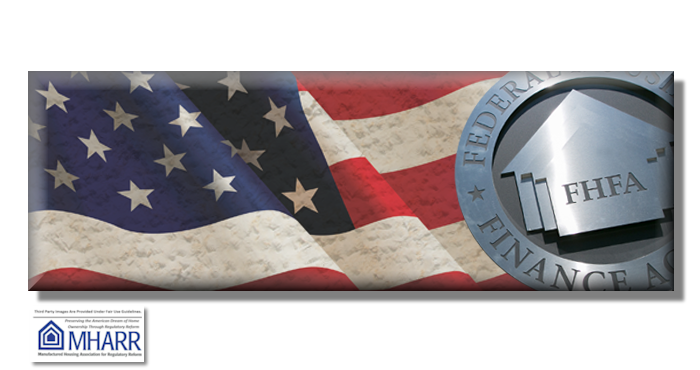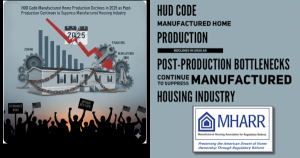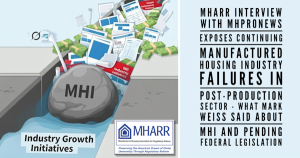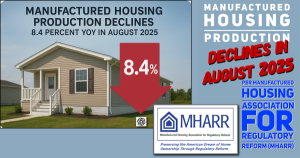[vc_row][vc_column][vc_column_text]FHFA BIAS AGAINST HUD CODE HOUSING CONTINUES
The Federal Housing Finance Agency (FHFA) has once again given HUD Code manufactured housing the back of its hand, as the regulatory agency responsible for the supervision and conservatorship of the two Government Sponsored Enterprises (GSEs) – Fannie Mae and Freddie Mac – has granted the GSEs permission to re-enter the Low Income Housing Tax Credit (LIHTC) market to the tune of up to $500 million per year, while the Duty to Serve Underserved Markets (DTS) with respect to manufactured housing continues to languish, with no concrete market action to date by either Fannie Mae or Freddie Mac.
In rationalizing the GSEs re-entry into the risky LIHTC rental housing market, FHFA stated that its “decision was based on several factors, including furthering the Enterprises’ mission to support affordable housing and ensuring that they could provide a countercyclical role in the LIHTC market in the future, if needed.”
This stands in sharp – and indefensible – contrast with FHFA’s dawdling and wholly inadequate implementation of DTS (and particularly the securitization and secondary market support of manufactured home chattel loans) within a market that provides inherently affordable home ownership for millions of lower and moderate-income Americans who might not otherwise have access to home ownership, and would benefit from the counter-cyclical impact of GSE investment and support today.
Thus, while FHFA has given its blessing to $500 million in annual LIHTC support by each Enterprise, it is poised to give approval to so-called DTS “implementation” plans by the GSEs which call for exactly zero dollars of DTS support for manufactured home chattel loans per annum by Freddie Mac and $20-25 million per year during years two and three of Fannie Mae’s three-year plan. Over the next three years, therefore, the Enterprises would be authorized to invest $3 billion in LIHTC tax credits (i.e., $500 million per Enterprise for three years), while DTS chattel loans purchases over the same period – to advance home ownership by credit-worthy lower and moderate-income American families — would not exceed $50 million, or 1.66% of the total LIHTC amount.
As MHARR has consistently maintained, the amounts proposed by the GSEs for the “implementation” of DTS – and particularly its chattel component — are wholly insufficient and inadequate and do not comply with either the letter or intent of DTS. MHARR will, therefore, continue to expose the failure of FHFA, Fannie Mae and Freddie Mac to fully implement the Duty to Serve Underserved Markets, with market-significant levels of securitization and secondary market support for the manufactured housing chattel loans which comprise upwards of 80% of the current HUD Code manufactured housing market.[/vc_column_text][/vc_column][/vc_row]













